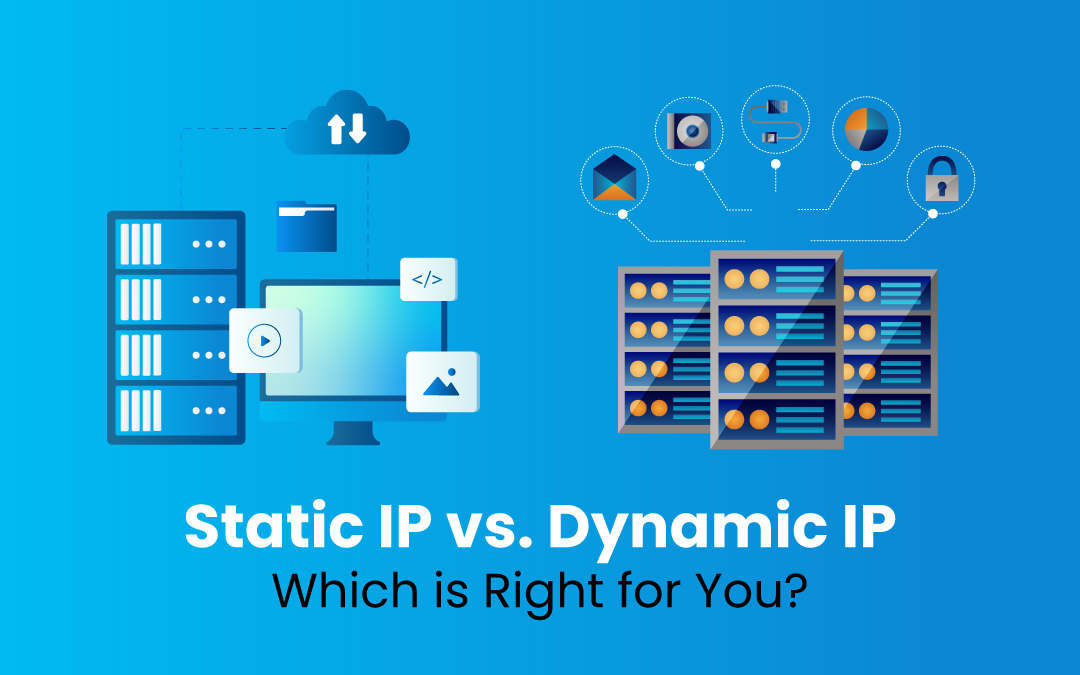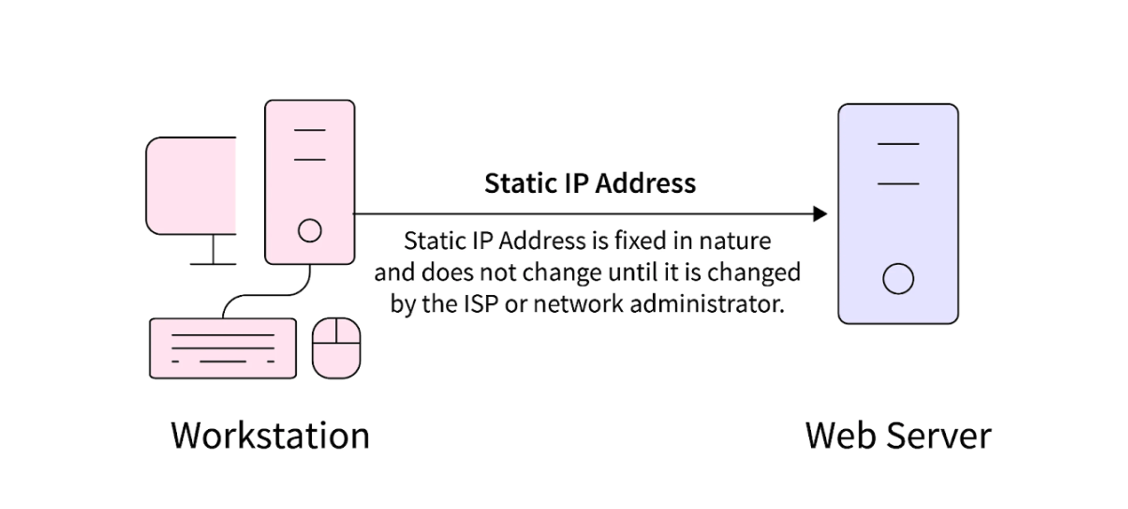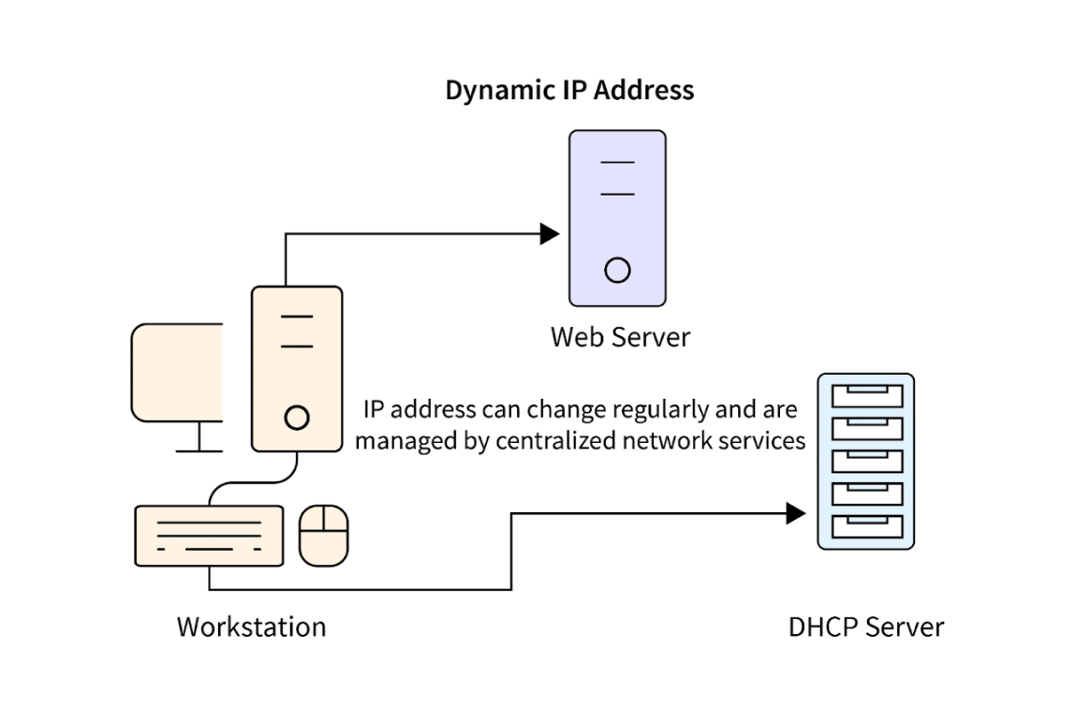
Static IPs stay unchanged, making them ideal for businesses, hosting, and remote access. However, dynamic IPs change every time you connect and are better for home networking and general use like browsing and streaming.
Static IP addresses remain fixed and are assigned by an ISP or network admin. In contrast, a dynamic IP address issued by a DHCP server that dynamically changes.
Many people consider using a trusted VPN service to mask their IP address and protect their online activity for enhanced privacy and secure browsing.
Today in this blog, we will explore the key differences between static and dynamic IPs, their applications, and which choice might suit you better.
What is an IP Address?
An IP (Internet Protocol) address is a unique numerical identifier assigned to each device connected to a computer network, such as the Internet.
It allows devices to communicate with each other by providing a way to locate and identify them on the network. Every device, whether a smartphone, computer, or server, needs an IP address to send and receive data.
Without an IP address, devices couldn't find each other or establish connections. Just like a postal address ensures that mail is delivered to the right location, an IP address ensures that information reaches the correct device on the network.
Additionally, IP addresses help with tasks like geolocation, security, and traffic routing, making them fundamental to internet functionality.
What is a Static IP?
Simply put, a static IP is a permanent IP address that doesn’t change and remains the same, unlike a dynamic IP that changes each connection.

Static IP has many advantages,
- Provides easy network management for network administrators.
- Static IP makes it simpler to access servers, networks, or devices remotely.
- It is more reliable for internet usage since the address doesn’t change.
- Better for security measures such as setting up VPN, firewalls, etc.
- It delivers faster download and upload speeds than dynamic IPs.
Common use cases: Remote workers, businesses, gamers/streamers.
What is a Dynamic IP?
Unlike Static IP addresses, Dynamic IP addresses change when a device connects to the network. The DHCP (Dynamic Host Configuration Protocol) server automatically assigns the device a dynamic IP every time it goes online.

Key benefits of using a dynamic IP with a VPN:
- Dynamic IPs are budget-friendly, as they are included in the standard internet service and don’t require an additional cost.
- No manual configuration is needed since IP is assigned dynamically.
- Comparatively more secure than static IP since it changes frequently.
- Allow for easy addition and removal of devices from a network.
- Ideal for regular users who want general online privacy.
Common use cases: Everyday browsing, streaming, casual internet use.
Key Differences Between Static and Dynamic IPs
| Feature | Static IP | Dynamic IP |
|---|---|---|
| IP Address Assignment | Fixed and manually assigned | Automatically assigned by a DHCP server |
| Consistency | Remains the same every time the device connects | Changes each time the device reconnects or after a set period |
| Cost | Usually more expensive; often requires an additional fee | Typically less expensive or included in standard plans |
| Configuration | Requires manual configuration | No manual configuration needed |
| Security | More vulnerable to hacking since it’s always the same | Offers more security as the IP address changes frequently |
| Use Cases | Best for hosting websites, remote servers, or gaming | Ideal for general internet usage like browsing or streaming |
| Reliability | More reliable for services that need consistent access | Less reliable for tasks that require continuous access to the same IP |
| Accessibility | Easy to access remotely using the same IP | Harder to maintain remote access due to changing IPs |
| Geolocation Stability | Geolocation remains constant | Geolocation can change if the IP changes to a different range |
| Ideal For | Businesses, servers, VOIP, VPNs, or secure connections | Home users, casual browsing, or non-critical services |
Both static and dynamic IP have their own pros and cons, It’s time to choose one.
Which One Should You Choose with a VPN?
Dynamic IPs are often the better choice for most users seeking privacy and security for browsing, streaming, or casual use. Static IPs are beneficial if you need a consistent IP for work, accessing specific networks, or hosting services.
Consider whether the VPN provider offers both options and what your primary needs are. VPN services such as Symlex VPN, Nord VPN, and Express VPN offer both dynamic and dedicated static IP for all kinds of users.
Closing Thoughts
When choosing between static and dynamic IPs for your VPN, consider your specific needs and use cases. Static IPs offer more control and reliability, while dynamic IPs provide better privacy and cost-effectiveness.
Evaluate factors like remote access, security requirements, and budget to determine the best option for your VPN setup. Ultimately, choosing between static and dynamic IPs depends on your priorities and specific usage needs.
Share this post
Leave a comment
All comments are moderated. Spammy and bot submitted comments are deleted. Please submit the comments that are helpful to others, and we'll approve your comments. A comment that includes outbound link will only be approved if the content is relevant to the topic, and has some value to our readers.

Comments (0)
No comment